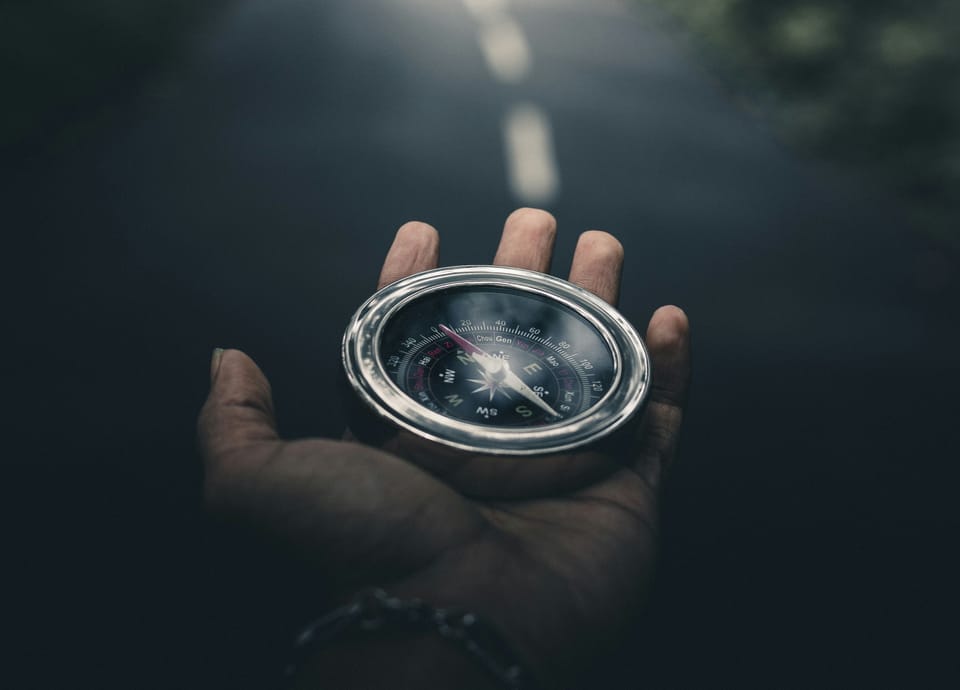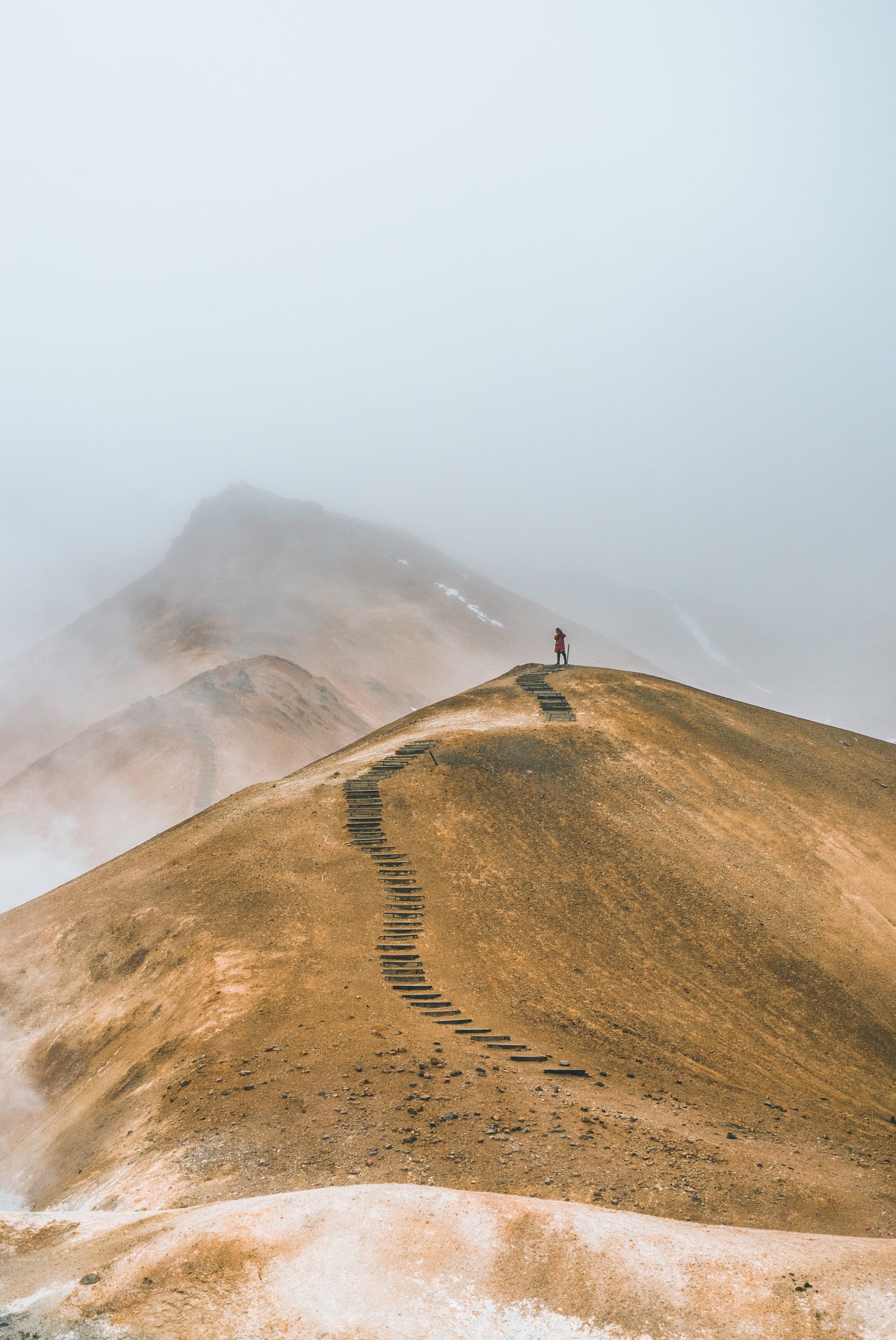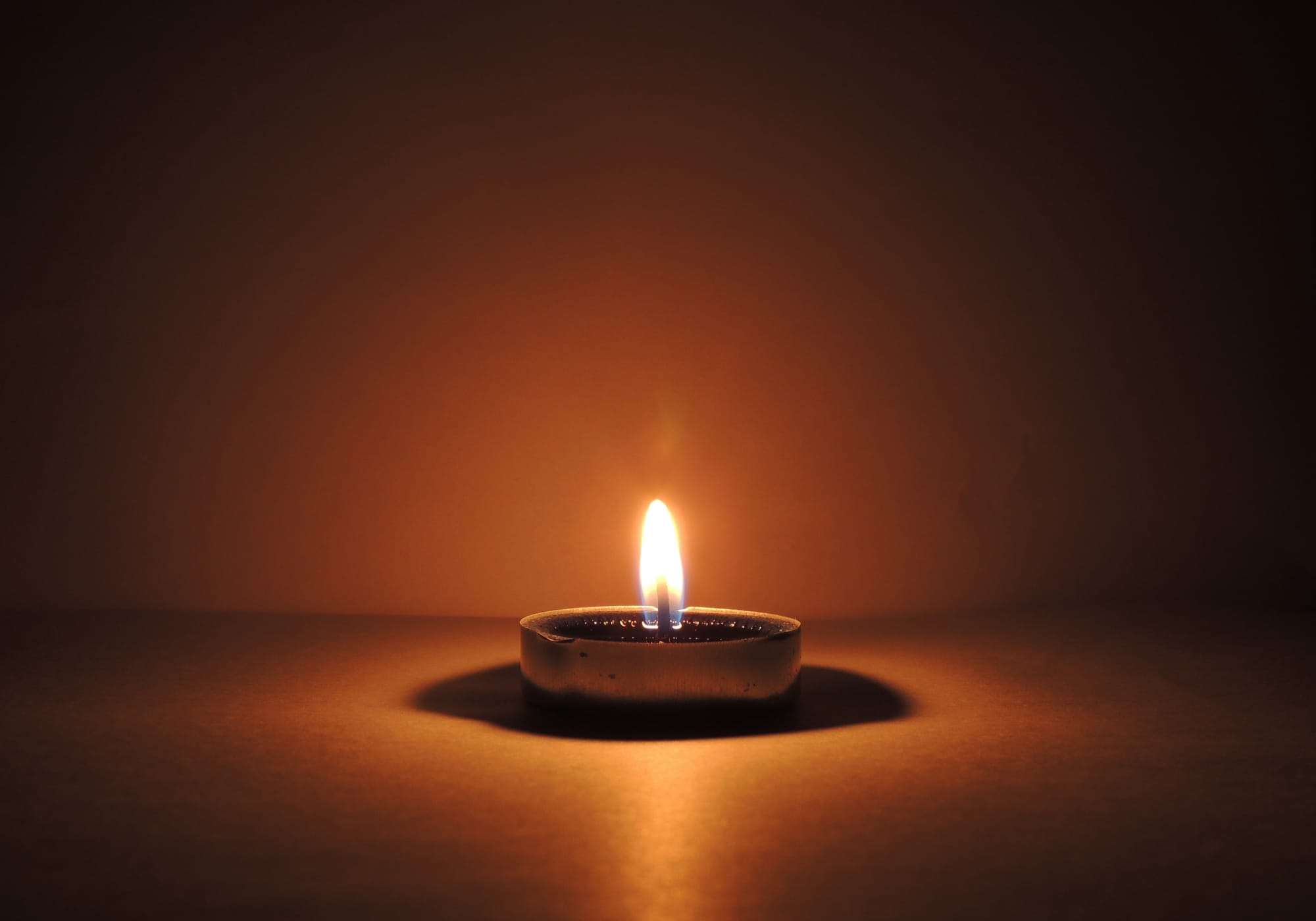How Finding Your Purpose Actually Works

Love represents our relationships with other people.
Purpose represents our relationships with our lives.
Purpose is a lot like love in just about every other way, too.
Young & wide-eyed we almost expect it to fall into our laps.
"What are you gonna be when you grow up?"
Something we love. Of this we are certain. Every time.
Over time we realize life doesn't work like that, and the pendulum swings the opposite direction. We become more jaded. We settle for "ordinary purpose". Maybe we settle for even less.
The point is, bit by bit we start taking what we can get from life. Losing hope in what it really has to offer.
This is seen as a practical, pragmatic, good idea. The safe and realistic option. Until we realize how many hours of our lives we spend:
- Doing work we don't care (fully) about
- In communities we don't feel we fit into
- Struggling to make contributions and help create the world we want to see because we're drowning in the one we live in
- And building social structures & rules designed to hold each member back. Not realizing we can design a style of friend group, family, and professional team that propels each member forward into the felt sense of purpose we can't help but yearn for.
- And the worst realization of all, doing all of this to fulfill someone else’s sense of purpose for them.
If your goal is to spend your life feeling safe enough to complain about the struggle of this with others who can relate, sacrificing purpose is definitely a roadmap that will get you there. Furthermore, I support you.
Because let me be clear: finding that sense of true purpose is also painful. We still complain. It’s also hard. And it’s really, really scary. Full of unknowns. Often alienating.
And in my experience, extremely worth it.
So if you notice you yearn for purpose anyway, that there's some little flame of hope in you that something deeper exists for you… (Something actually worth living a hard life for)...
That hopeful part of you has got a point. There is more. This part of you knows this to be true, and its entire job is to point it out to you. From there, it’s a matter of if you want it enough to take it.
I tend to believe this part of you is your intuition. Trying to give you some direction for a more fulfilling life. Or at least it’s always been that for me.
Like a lot of people I put it off for a long time. The unknowns were just too much. I had to play it safe until I couldn’t anymore. So I feel you if the unknowns are a bit too much for you too. If this whole concept feels a bit too elusive or even a bit “woo”.
That Can Change Today.
Today you get some direction on how to “find your purpose in life”.
Because in discovering my purpose I learned a lot about it. It's not as wild or "woo" as you think, though it is hard and vulnerable work. There are some practical elements it helps to focus on.
I’ll share that here with you in case you find it helpful in your decision.

The Path They Didn't Show Us
I mentioned in the triggers video that I'm a big fan of understanding the nature of things. The more I can understand the nature of something, the better I can work with it.
This is about developing an intuitive sense of something. Then it becomes like riding a bike. Automatic. We get to think less. Do more.
That’s why I focus so much on a felt sense. We want the felt sense because we don't question it. A felt sense becomes a knowing.
Knowing brings us peace. Confidence. The ability to show tf up to our lives.
Speaking of which.
Defining Purpose
I'll define purpose here as a "felt sense of meaning and fulfillment in life". Simple enough.
Notice how I said that term, “felt sense”.
We think of purpose as a noun. Something to obtain. A status we achieve on paper.
It’s not.
I've worked with multi-millionaires who are the first ones to talk about "impact" publicly and confess to me their lives feel empty privately.
Purpose has nothing to do with success or status. It is not a thing we achieve.
It’s a feeling we cultivate, not much different from gratitude, and joy.
If you spend your life looking for “your purpose” you’ll stay looking.
If you switch to cultivating a felt sense of purpose you’ll start making moves in your life that lead you there.
And not just in your career. All over your life. Because feelings? Well, we can feel those just about anywhere.
Which brings me to my next point…
There are Levels to This
It’s not an “on/off” switch.
You don’t wake up one day and suddenly know your purpose in life, then everything clicks into place. Instead, it’s about identifying, cultivating, and deepening that felt sense of purpose in the life you’re living, piece by piece.
Over time, your felt sense of purpose can grow, deepen, wane, etc.
Putting it Into Perspective
Sticking with the love analogy: we like our partners, then maybe we're a bit smitten or infatuated with them. We fall in love with them, then we develop a deeper sense of love. We build a home in them over time. And they, us. No matter how much fear-mongering we see about codependency, that's what happens. Building homes in one another is something humans do.
Of course, we also go through other seasons. Seasons of disliking, avoiding, or even hating our partners, depending on what life throws at us and how we handle it.
And that’s the key. How we handle it.
Remember, Purpose represents our relationship with our lives as a whole. It's basically how in love with our life we are. All the same stuff applies.
There are levels. Levels of liking, loving, being smitten with, being in love with, disliking, avoiding, and hating our lives. We make choices at every step. Those choices heavily impact how much time we spend at each level.
If you want to spend more time experiencing a fulfilling, deep sense of meaning and connectedness with your life, it's important to be aware of - and intentional about - your choices.
It’s important to consider your relationship with your life as you make those choices.
It’s important to not give up on your sense of purpose. Instead, find it. Cultivate it. Lean into it.
Unlike romantic love, your relationship with your life is between you and yourself. You have a lot of control here in how you do this. The question is how will you acknowledge and exercise that control.
There are 5 elements in particular that, when we cultivate them, will give us a deeper sense of purpose.
I dare you to prioritize these in 2024 and watch your world bend to greet you in ways you didn’t realize could exist for you.
Let's dig in.

The Five Elements of Purpose
#1. Skills: The Guideposts
Skills are important, but not for the reasons we seem to think.
They're also kind of boring without context so we'll make this quick & get to the good stuff.
The skills we gravitate to are clues. They point us to something deeper that we instinctually look for.
When we don't find "something deeper", we settle with building careers and lives based on skills alone. We tap into what you might call a Level 1 sense of purpose at most. But we won't find the true purpose we yearn for by exercising a mere skillset.
Skills are important in one other way and I'll tell you why in a minute. But we're going to use them right now because we need them to lead the way, so...
Grab Some Paper:
Write down your main skills. The ones you love and that seem to stick with you.
Consider soft and hard skills.
You might have soft skills of being a good listener, problem-solving, empathy, etc.
If you struggle to know your soft skills - which plenty of people do - consider the inter-relational skills you value. Or ask your friends. You can find plenty of examples on Google. Like these.
Awareness of our soft skills is important. It helps us understand how we connect and relate to people and the world. This is a key element of purpose.
Include hard skills of, say, web development & design, carpentry work, organization, and stuff like that.
Expand your view beyond your career or job. What skills show up at home? In your hobbies? In your community?
Get clear on your soft and hard skills. We'll continue to work with them in the next section. They’re giving you clues to your purpose and we’re going to use them.
These are tools. That's it. They’re valuable but don't romanticize them. Keep going.
#2. Gifts: The “What”
I can’t stress enough how clarifying it can be to distinguish between your skills and your gifts. Then you can actually use them intentionally.
The Rundown:
Skills are good for two things:
- They help us find our gifts
- They support us in using those gifts.
Skills don't come naturally to us. We tend to have to learn them from scratch. They're our craft. They may be fun, exciting, and rewarding, but they don't inherently light us up.
Gifts on the other hand are innate. They do inherently light us up. They're a central part of who we are. Our weapons and our sustenance, we wield them however we need to with masterful finesse.
We don’t question if we’re good at the thing, though we can wonder if we’re “good enough” while comparing ourselves to "top players" (i.e. people who are winning the popularity contest inherent within systems of capitalism & oppression).
Still, we know we’re good at the thing. It comes naturally to us and we love to do it.
Simple Examples:
Skill: Photography | Gift: The photographer's eye
Skill: Painting | Gift: The artist's vision
Skill: Orating | Gift: Perhaps the orator's message, or the energy of their delivery
Our most important skills are often our talents. They still aren't our gifts, but they sure as hell can show us where to find them.
I'll break down exactly how to do this in a moment. But first, I need to warn you of something that gets in the way of almost all of our ability to find, see, accept, and embrace our gifts.
Gifts Come With a Trap
The deeper you know, understand, and embrace your gifts, the deeper your felt sense of purpose becomes. But almost every one of us bumps up against a pretty big roadblock here.
Frankly, it's our own narcissism. Hear me out:
We zoom in on the popular, conditioned message we were all given.
"The Universe gave me this gift! This is what makes me special!"
Then we immediately put ourselves under a bunch of pressure to be perfect at it. To be this special person with this special identity wrapped around this special gift. This perfectionism and specialhood fuels all kinds of anxiety, panic, and imposter syndrome. We crumble to it. It holds us back.
Alternatively, we might reject the idea that our gift is special at all. Oh anyone can do it. No matter how many people affirm that it’s valuable to them that we can do it how we do.
I'm pretty sure most of us wrestle with this at some point. Especially those of us who dare to step up and do something deeper. We bump right into this, blind to it most of the time.
But I want to be perfectly clear: there's no sense of purpose in staying there.
Both of these extremes miss the point, so I’m going to make it bold:
Your gifts aren’t about you either way.
Gifts are meant to be given.
Whether it makes you special or not literally isn't the point.
The Universe didn't give it to you for you to run around putting all this pressure on yourself to be perfect at this "special skill". The Universe gave it to you to help balance the world.
We all share this big house called Earth, and everyone has a job to do.
Your Gifts define your role.
The focus is to give it away as often as possible for causes you care about. To uplift your community, your family, your friends, your clients & customers. Anyone who’s ripe for receiving it.
It's not about who's special.
It’s about the fact that since everyone doesn't have this gift, they don't have the privilege of reaping the benefits of it like you do.
Make no mistake, a LOT of this whole purpose thing is about focusing on yourself. You will be and feel validated plenty when you align with your track. You get to be very self-focused.
But the Gifts part? That part is about stewardship. The power we have to give.
When We Struggle With This, It's a Signal To Heal
When we use our gifts as pedestals on which to prop our egos, we fall on the sword of shame those pedestals are built to protect us from.




